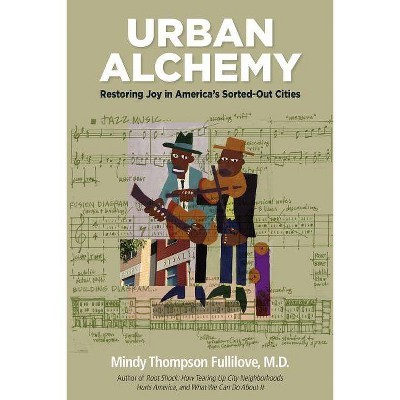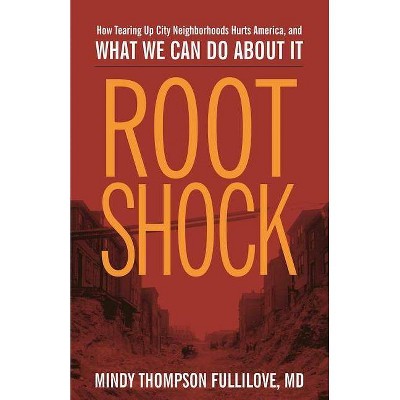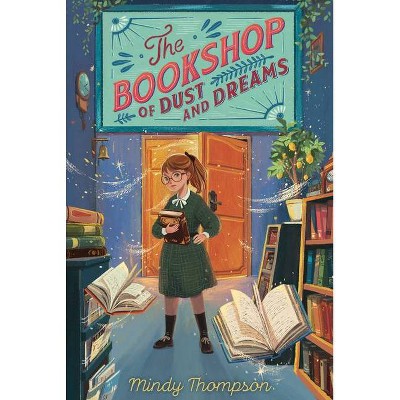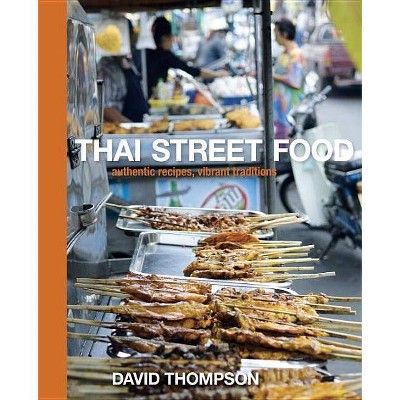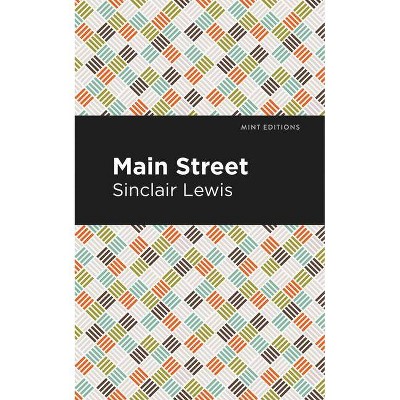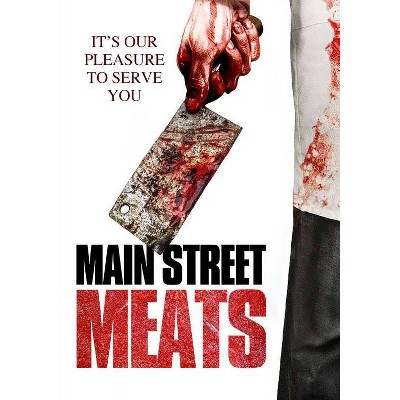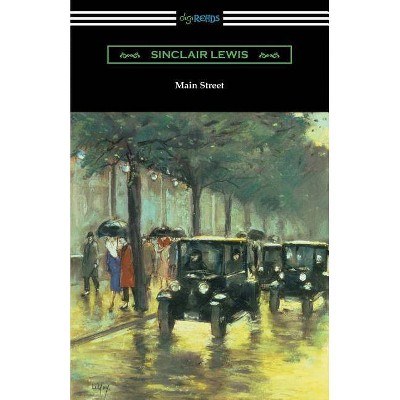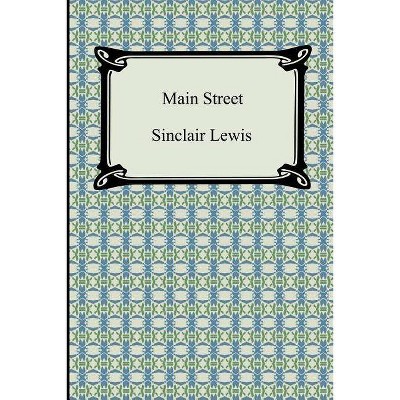Main Street - by Mindy Thompson Fullilove (Hardcover)
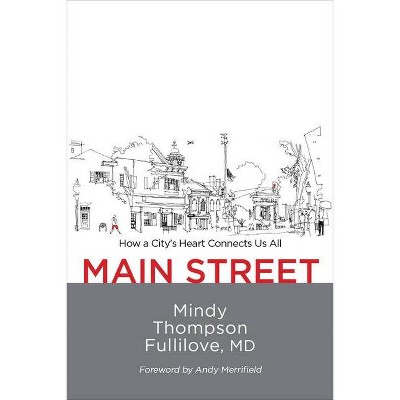
Similar Products
Products of same category from the store
AllProduct info
<p/><br></br><p><b> About the Book </b></p></br></br>"How do Main Streets contribute to our mental health? This question took social psychiatrist Mindy Thompson Fullilove on an 11-year search through 178 cities in 14 countries. From informal observations, Fullilove discerns the larger architecture of Main Streets. She describes the myriad ways that Main Streets are shaped for social interactions and how they are a marker for the integrity of civilization. Her illustrated book shows how urban centers are essential for gathering people to share information and to tend civic and commercial tasks that benefit all. She addresses ways cities can cure, not only ills of an inequitable, post-industrial culture, but malaise of a post-pandemic culture seeking reconnection"--<p/><br></br><p><b> Book Synopsis </b></p></br></br><p><b>Mindy Thompson Fullilove traverses the central thoroughfares of our cities to uncover the ways they bring together our communities</b> <p/>After an 11-year study of Main Streets in 178 cities and 14 countries, Fullilove discovered the power of city centers to "help us name and solve our problems." In an era of compounding crises including racial injustice, climate change, and COVID-19, the ability to rely on the power of community is more important than ever. However, Fullilove describes how a pattern of disinvestment in inner-city neighborhoods has left Main Streets across the U.S. in disrepair, weakening our cities and leaving us vulnerable to catastrophe. <p/>In the face of urban renewal programs built in response to a supposed lack of "personal responsibility," Fullilove offers "a different story, that of a series of forced displacements that had devastating effects on inner-city communities. Through that lens, we can appreciate the strength of segregated communities that managed to temper the ravages of racism through the Jim Crow era, and build political power and many kinds of wealth. . . . Only a very well-integrated, powerful community--one with deep spiritual principles--could have accomplished such a feat." This is the power she hopes we will find again. <p/>Throughout <i>Main Street</i>, readers glimpse strong, vibrant communities who have conquered a variety of disasters, from the near loss of a beloved local business to the devastation of a hurricane. Using case studies to illustrate her findings, Fullilove turns our eyes to the cracks in city centers, the parts of the city that tend to be avoided or ignored. Providing a framework for those who wish to see their communities revitalized, Fullilove's <i>Main Street</i> encourages us all to look both inward and outward to find the assets that already exist to create meaningful change.</p><p/><br></br><p><b> Review Quotes </b></p></br></br><br>"Always defying categories, psychiatrist and urban activist Mindy Fullilove takes us on a geographical and historical journey to Main Streets around the world. . . . This is as much a guide for the perplexed (or depressed) as it is an astonishing study of the built environment and its effects on our health, communities, politics--and our future."--Mara Spiegel, Co-Director, The Division of Narrative Medicine, Columbia University<br><br>"As urbanists think about the future of cities, communities, and connections in this new world, <i>Main Street</i> is the place to start this analysis. . . . Organizers, researchers, doctors, architects, and politicians, by reading this book, will learn how to build the city in which everyone prospers."--Nupur Chaudhury, MUP, MPH, Host, <i>NupurSpectives</i><br><br>"Synthesizing her observation of over 100 cities and conversations with leading thinkers, Mindy Fullilove's <i>Main Street</i> provides a novel perspective that guides us to see the social geometry of what makes a community vibrant. It should be required reading for students in urban sociology, architecture, urban planning, and community health."--David Vlahov, PhD, RN, Editor, <i>Journal of Urban Health</i><br><br>"The doctor is in . . . examining community life. With the eye of a natural scientist, with the warm wit of a country practitioner on house calls, psychiatrist Mindy Fullilove prescribes the renaissance of Main Streets for the ills of industrial decline. You will not see your neighborhood, nor your neighbors, the same way after reading this book."--Helena Hansen, Associate Professor, NYU Anthropology and Psychiatry Departments<br><br>"Main Street builds on Mindy Fullilove's previous works and treats us to one of the most important books about our contemporary towns and cities since Jane Jacobs' Death and Life of Great American Cities. Mindy's perspective on the psychology of place helps us understand a different story, a story of serial forced displacements that have had devastating effects on inner-city communities, and, by extension, to all peoples and all places. This book's story is not isolated to memory and issues of race, class, and poverty; rather, it builds a strong connection to climate justice and to a more promising future."--Ron Shiffman, Professor, Pratt Institute Graduate School of Architecture "Pratt Institute Graduate School of Architecture "<br><p/><br></br><p><b> About the Author </b></p></br></br><p><b>Mindy Thompson Fullilove (Author) </b><br> <b>Mindy Thompson Fullilove, </b> MD, is an American social psychiatrist who focuses on the ways environmental factors affect the mental health of communities. She is Professor of Urban Policy and Health, Urban Policy Analysis & Management Program, Milano School for International Affairs, Management & Urban Policy, The New School. She has numerous published articles and six books, including <i>URBAN ALCHEMY: Restoring Joy in America's Sorted-Out Cities</i> and <i>ROOT SHOCK: How Tearing Up City Neighborhoods Hurts America and What We Can Do About It</i>. <p/><b>Andy Merrifield (Foreword by) </b><br> ANDY MERRIFIELD is an independent scholar and author of a dozen books, as well as numerous<br>articles, essays and reviews appearing in Monthly Review, The Nation, Harper's Magazine, New<br>Left Review, The Guardian, Literary Hub, Jacobin, and Dissent. He is a prolific writer about<br>urbanism, political theory and literature, with titles credited to him including Dialectical<br>Urbanism (Monthly Review Press), The New Urban Question, and Magical Marxism. He has also<br>published three intellectual biographies, of Henri Lefebvre, Guy Debord, and John Berger, a<br>popular existential travelogue, The Wisdom of Donkeys, a manifesto for liberated living, The<br>Amateur, together with a memoir about cities and love, inspired by Raymond Carver's short<br>stories, called What We Talk About When We Talk About Cities (and Love). <p/></p>
Price History
Price Archive shows prices from various stores, lets you see history and find the cheapest. There is no actual sale on the website. For all support, inquiry and suggestion messages communication@pricearchive.us
